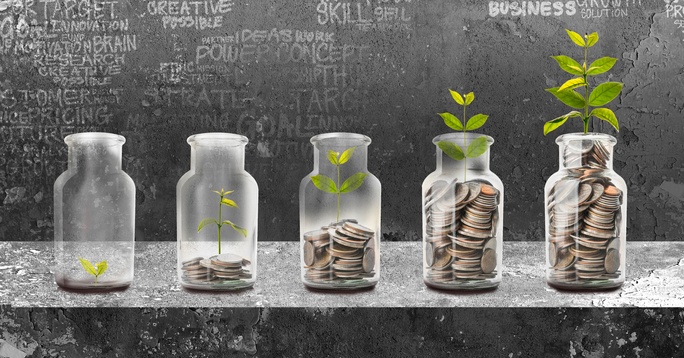
When a plan of action is needed - especially a marketing plan - it’s always good to look at the past and examine what worked and what didn’t. And when it came to marketing and advertising during the 2008 recession, many businesses struggled with creating that plan. They needed strategies that would help them continue to serve their customers while still protecting their business's interests, which is where many are at now. Interestingly, throughout the 2008 recession, businesses that continued to advertise saw immense benefits that helped them recover faster, and while some businesses strived to keep their doors open, other businesses were created behind closed doors. In fact, some of our favorite businesses--the ones that we connect with regularly today--were founded during that time of turbulence.
Let’s take a look back at what we can learn from 2008, the successes and downfalls, and how we can use it to create a marketing plan for today.
Staying Connected Proved to be Beneficial
Businesses that continued to advertise through the recession saw benefits both during the crash and afterward. Not only did they keep up their advertising momentum throughout the crisis, but they also provided a vital frame of reference that helped customers think positively about them when the recession came to an end. Thanks to those advertising efforts and staying connected to customers, those businesses emerged successful on the other side. Here are a few examples of businesses that saw success by staying top of mind and relevant:
- Amazon sales grew by 28% in 2008 due to continued innovation throughout the recession.
- Dominos turned their recipes and other needs around, which increased sales substantially in the aftermath of the 2008 recession.
- Snuggie offered a unique new product that fit the needs of customers who were eager to stay home and save money--and the brand turned into a recession hit.
By using their campaigns to talk to their customers, these brands not only maintained momentum but reached new heights. By providing products and services that people needed during those times, these businesses came out stronger and with deeper relationships with their consumers.
Leaders in Industry Prevail
The industry leaders who continue to market their businesses are the ones who ultimately come out on top. Consider Post and Kellogg's. During the recession of 2008, Post stopped advertising, while Kellogg's actually increased its advertising budget. As a result, Kellogg's became the leader in cereal--and launched a new cereal in the process.
Take it from Post - just because you were on top, doesn’t mean you’ll stay there. Keeping your ad spend at a steady rate or even increasing it during this current COVID-19 crisis will help you see an increase in sales, higher performance in the industry and a greater percentage of the market.
New Products and Services Arise
Many amazing businesses were founded during the 2008/2009 economic crisis, some have become icons around the country. While spending in some nonessential areas may decrease during a recession, spending in other areas may increase--and savvy marketers take advantage of those opportunities. Here are some brands that began during that time:
- Credit Karma offers free credit scores and reports and happened to be founded by Ken Lin amidst the 2008/2009 recession. This vital service has become incredibly familiar and is recommended to Americans who are hoping to grow their credit.
- Venmo makes bill sharing easy--and makes it easier to request money from friends. During the recession, this service was particularly vital, since friends might want to come together to share expenses or might need to help one another--and not everyone could afford to treat other members of the party. The platform, however, has continued to rise in popularity ever since, becoming a convenient way to virtually transfer funds between friends.
- WhatsApp launched in 2009 and has since become one of the world's most popular messaging platform, allowing for voice, video, and text communication, as well as easy document sharing between users.
- Groupon was founded in the middle of the 2008 recession to connect brands and businesses with their customers by offering deals.
- Uber was created in 2009 after two businessmen couldn’t get a taxi at night. Now, it’s proving to be extremely lucrative with its expansion Uber Eats as people are having to stay in and order delivery.
- Slack, a popular collaboration tool, makes it easier for groups to work together--and it arose out of the 2008/2009 recession to excel in its field. It’s also experiencing an even bigger demand right now as most businesses are working from home.
- Square started out simplifying mobile payments and handling financial transactions in 2009, but continues to grow to offer a wide range of services to business owners.
When coming up with your own marketing plan, think of what worked in the past and how you can best position your business to serve your community and their current needs. Businesses that continue to market themselves through unprecedented times and offer easy solutions often see increased profits and brand awareness when the economy starts to open back up again. If you need help creating this plan, team up with a trusted media partner who can assist in crafting your message and produce timely elements. They can also help you stay within your budget and invest wisely so you’re reaching the right people at the most critical time.
![grayLasVegasLogo11-18-21[1] grayLasVegasLogo11-18-21[1]](https://www.graylasvegas.com/hs-fs/hubfs/grayLasVegasLogo11-18-21%5B1%5D.png?width=7128&name=grayLasVegasLogo11-18-21%5B1%5D.png)

